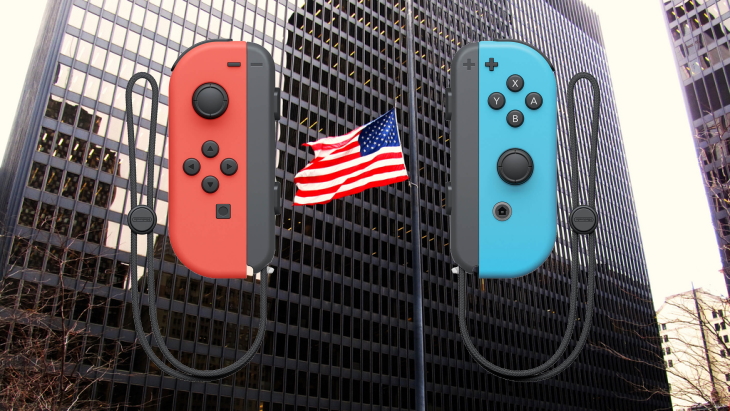
A federal judge in the U.S. District Court for the Northern District of Illinois has ruled a lawsuit against Nintendo due to the Joy-Con drift must go to arbitration.
Nintendo Life reports (citing Bloomberg Law and Law360– both behind subscription walls), that on May 21st Judge Gary Feinerman ruled that in the Zachary Vergara Joy-Con drift case, Vergara must seek arbitration.
In case you missed our prior reports, the Nintendo Switch’s Joy-Cons have issues with drifting–which is when the joystick remains untouched, yet input is still registered.
This resulted in a class action lawsuit by Chimicles, Schwartz Kriner, & Donaldson-Smith in July 2019. Reports suggest Nintendo even began repairing Joy-Cons for free mere days after the lawsuit became public knowledge.
The Nintendo Switch Lite was later added to the lawsuit, and the hardware failure causing the drift was exposed. Curiously, a Tencent representative (the distributor of the Nintendo Switch in China) told a customer that the drift was caused by playing an imported game.
In late December, 2019 we also reported how French consumer magazine 60 millions de consommateurs awarded Nintendo their “Golden Cactus” award (specifically the “Cactus of the Too Fragile Product”), which is given to products and services that cause the most frustration.
Belgian consumer organization Testankoop also demanded Nintendo repair all Joy-Cons for free, and honor a two year warranty.
Vergara’s lawsuit reportedly asserted that the Joy-Con controllers had a fault which “causes the joystick to activate or drift on its own without the user actually manipulating the joystick.” This is no doubt Joy-Con drift, especially with claims that it “significantly interferes” with gameplay.
The lawsuit was opened in August, and attempted to claim for “violations of consumer protection laws, breach of warranty and unjust enrichment,” unspecified damages, and legal costs. A month later, Nintendo reportedly moved this case to federal court.
Nintendo reportedly claimed (in Nintendo Life’s words) “that Vergara willingly signed an end-user license agreement that required him to arbitrate claims related to its Switch console and its associated control devices.” Vergara claimed that his case was an exception, exempting claims “that may be brought in small-claims court.”
Feinerman ruled that Vergara must (in Nintendo Life’s words) “ask an arbitrator whether his alleged claims belong in court, or if they’re actually subject to an arbitration clause in an end-user agreement Vergara will have agreed to when he first purchased the Switch itself.”
“Vergara correctly observes that a party cannot be required to arbitrate a dispute that he has not agreed to submit to arbitration. That principle, however, does not mandate that the court, rather than the arbitrator, decide whether his claims must be arbitrated. By entering into an arbitration agreement that incorporates the AAA Rules, the parties delegated to the arbitrator the question whether Vergara’s claims must be arbitrated.”
In short, arbitration means seeking to settle a conflict outside of court, though the decision made through arbitration would be legally binding. Feinerman did reportedly add that Vergara could bring the case back to court, should the arbitrator decide the claims in the case were not subject to arbitration.
Nintendo Life also reports a similar decision was reached by a federal judge in Washington on March 11th. While the Judge refused Nintendo’s plea to dismiss the case, he instead paused the class-action suit until after the outcome of arbitration.
Image: Nintendo, U.S. District Court for the Northern District of Illinois official website